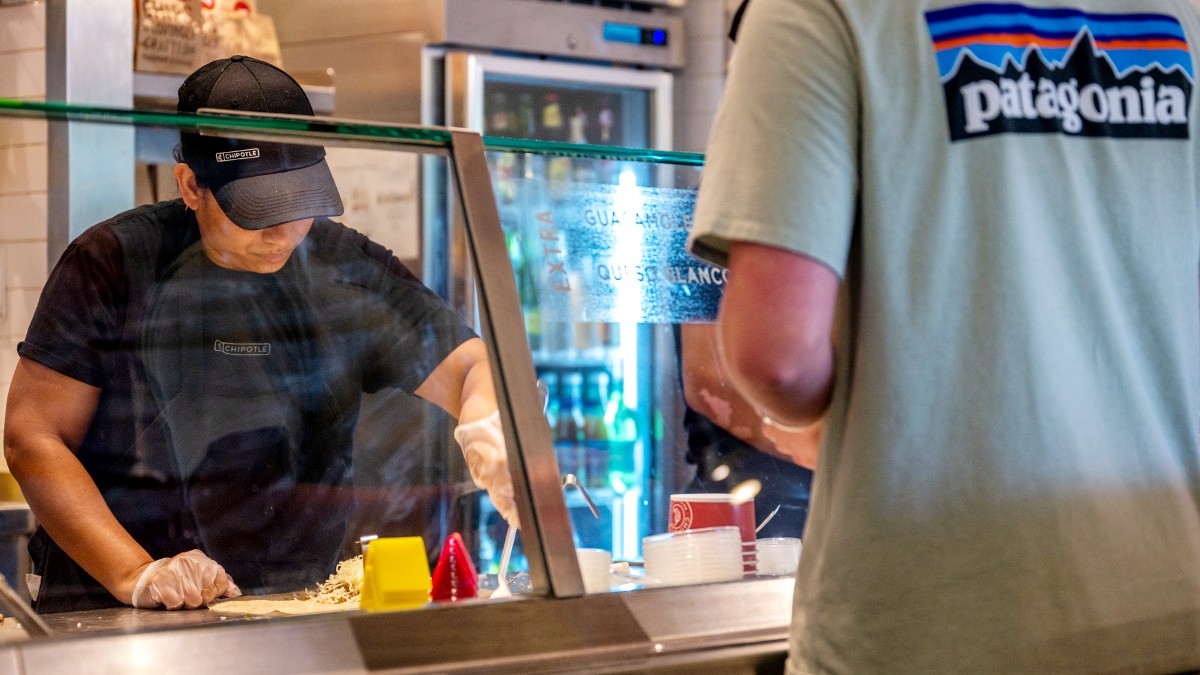Working in Fast Food Shouldn’t Be Equivalent To Serving Jail Time

An Ohio judge is allowing a woman who assaulted a Chipotle employee to work in fast food for two months instead of serving two months of jail time. It’s a testiment to the poor working conditions in fast food when working in the industry is a “punishment” equivalent to jail time.
26-year-old Emily Russell had been working at Chipotle for four years when Rosemary Hayne assaulted her on September 5. The incident was caught on camera and quickly went viral on social media. In the video, Hayne can be seen shouting and gesturing aggressively at the counter of a Chipotle restaurant in Parma, OH, while Russell calmly tries to defuse the situation. After a minute of shouting, Hayne proceeds to violently throw her hot burrito bowl in Russell’s face before storming off.
The whole incident arose simply because Hayne’s bowl didn’t look the way she wanted it to. As disturbing as the video is, it’s sadly just one of several videos that have gained traction recently of fast food employees facing verbal or physical attacks from aggressive customers, including having food, drinks, or chairs thrown at them.
Meanwhile, having things thrown at them is just one of the problems fast food workers face. These employees are usually overworked and underpaid while also facing threats of gun violence or being forced to work during natural disasters. They also face misconceptions about their work not constituting a “real job” and, thus, resistance when they try to secure better pay and working conditions. However, even our justice system seemingly admits that working conditions are so poor in the fast food industry that they’re equivalent to serving jail time.
Woman sentenced to work two months at a fast food restaurant
Fortunately, Hayne was arrested the same day as the incident in Chipotle and charged with misdemeanor assault. However, on November 28, Parma Municipal Court Judge Timothy Gilligan gave her an unusual punishment. Based on the seriousness of her crimes, she was ordered to pay a fine and sentenced to 180 days in jail with 90 days suspended. Gilligan then offered her an alternative option: She could work two months at a fast food restaurant to reduce her jail sentence to one month. Unsurprisingly, she chose the latter option and is currently seeking a fast food job.
Gilligan claimed Hayne would have to “walk in [Russell’s] shoes for two months.” However, Hayne won’t be walking in Russell’s shoes. She only needs to work 20 hours per week for two months to fulfill her sentence, even though Russell revealed she was working 65 hours per week at the time of the assault.
Additionally, Hayne is choosing to work a very short amount of time to get out of serving jail time for her crimes. Russell was working 65 hours a week to survive and was forced to continue her shift after having a burrito bowl thrown in her face by an entitled woman. She ended up quitting her job after Chipotle failed to even contact her after her assault was caught on camera. What Hayne will experience is nothing compared to the reality that fast food employees actually live.
Meanwhile, Gilligan is essentially stating that working in fast food is a punishment and working this job only part-time is equivalent to serving a prison sentence. One can’t help but wonder what working 65 hours per week for four years is equivalent to. What’s shocking is that a judge could so easily equate this career to jail time but not campaign for things to change. Does Gilligan not realize that there are actual people who work in fast food to provide for themselves and their families? Is he really so out of touch that he merely sees it as a punishment for entitled white women?
Something is terribly wrong in the fast food industry if working within it is considered equivalent to jail time. Instead of allowing criminals to reduce their sentences by working part-time in a fast food restaurant, we should be focused on bettering the conditions for actual hardworking employees who choose to fill these necessary jobs despite how badly they are often treated. These workers don’t have the privilege of working part-time to get out of a prison sentence. They’re working to make an honest living, and their working conditions shouldn’t be as bad as serving time in jail, nor should their profession be looked down upon so much that it’s considered punishment to the wealthy.
(featured image: Brandon Bell / Getty)
Have a tip we should know? tips@themarysue.com